2023.06.01
Since the outbreak of the pandemic, numerous touch-free devices have been introduced to the market. However, most of them are neither intuitive nor responsive enough to be widely used. To address these problems, Hung-wen Chen (陳鴻文), assistant professor in the International Intercollegiate Ph.D. Program (IPHD) at National Tsing Hua University (NTHU) in Taiwan, has successfully developed m'AI Touch, the first touch-free device incorporating AI algorithms and multiple infrared sensors that can allow users to press elevator buttons without the need for physical contact.
Chen pointed out that by incorporating AI technology, m'AI Touch exhibits exceptional sensitivity and responsiveness to user interactions, while also being capable of disregarding accidental touches. Moreover, it is programmed to adapt to users' habits and preferences. When fingers are detected within a range of 5-centimeters from the elevator buttons, m'AI Touch swiftly activates the button lights within 0.4 seconds, ensuring an intuitive user experience.
The performance of m'AI Touch surpasses that of other touch-free elevator control panels that rely on infrared or capacitive sensors, which typically take longer to detect user presence and can only respond within a 1-centimeter proximity.
Chen explained that AI has a very strong ability to interpret sensor input and infer the user's intention to press a button. In an overcrowded elevator where people stand too close to the control panel, AI can prevent unintended button activations. It can even discern specific intentions, such as blind individuals using Braille next to the control panel, and avoid misinterpreting them.
In addition, m'AI Touch is easy to install. The device is the size of a small box, and measures 14 centimeters in length and width and 5 centimeters in thickness. An add-on device, which can be installed above the elevator control panel near the ceiling, m'AI Touch is compatible with all kinds of elevators, including both old and new models. It can accurately detect and interpret the user's intention to press a button without requiring physical contact.
The first m'AI Touch was recently installed in the TSMC Building on campus. Students and faculty found that the m'AI Touch interaction is very similar to the traditional elevator experience, with the added benefit of eliminating the need for physical touch. Users can simply point at the “close” button to initiate the closing process of the elevator doors. They can then point at the desired floor buttons, such as the 5th, 6th, and 7th floors, to select their destination.
To cancel their selection, users can point at the wrong floor button for a duration of about 2 seconds to deactivate the button light. Such a design emulates the long-press action commonly used for cancellation in electrical device interfaces.
The feedback from students and faculty indicates their satisfaction with the device, as they will no longer need to rely on hygienic methods like applying plastic film on the buttons, daily alcohol spraying, or using keys to press the elevator buttons.
According to Chen's analysis, infrared sensors are commonly used in most touch-free devices, including automatic doors, sensor faucets, and urinal flushing devices. However, elevator buttons are typically densely packed together, with more than ten buttons located close to each other on a control panel. In such cases, relying solely on infrared devices for sensing elevator buttons can increase the chances of false activations.
Employing AI offers a viable solution to achieve more accurate and reliable button detection. Chen further pointed out that we can anticipate increased integration of AI into touch-free devices, such as touchscreen-based ordering systems for restaurants, ticketing systems for public transportation, and interactive devices in museums.
Chen noted that the name “m'AI Touch” was deliberately chosen to resemble the pronunciation of “touch-free” in the Taiwanese dialect, with the letters AI symbolizing the incorporation of cutting-edge AI technology into the system. The design helps people maintain social distancing by eliminating the need for physical contact with the elevator buttons.
m'AI Touch has won numerous awards, including the 2022 National Innovation Award, which is the highest honor in the field of biomedicine in Taiwan and the 2022 Taiwan Yunus Social Business Innovation Award.
In addition to being selected as one of the top ten technological breakthroughs by InnoZone, the invention also won the 2022 NTHU Smart Campus Project subsidy, the NTHU Campus as a Living Lab Award, and the NTHU People's Choice Award. Currently, Chen's research team is applying for patents on m'AI Touch in Taiwan and the United States.
Chen received his PhD in Electrical Engineering and Computer Science from the Massachusetts Institute of Technology (MIT). In 2020, he was chosen as a Yushan Young Scholar by the Ministry of Education. He also has extensive experience with startup ventures.
The members of his research team include IPHD students Chen-wei Hu (胡承維) and Yi-jiun Shen (沈宜郡), who are responsible for hardware and software development, respectively; Chung-en Kuo (郭仲恩), a master's student in the Institute of Learning Sciences and Technologies, who is responsible for project management and business development; and Ya-hui Chang (張雅惠), a master's student in the Department of Education and Learning Technology, who is responsible for finance, international affairs and marketing.
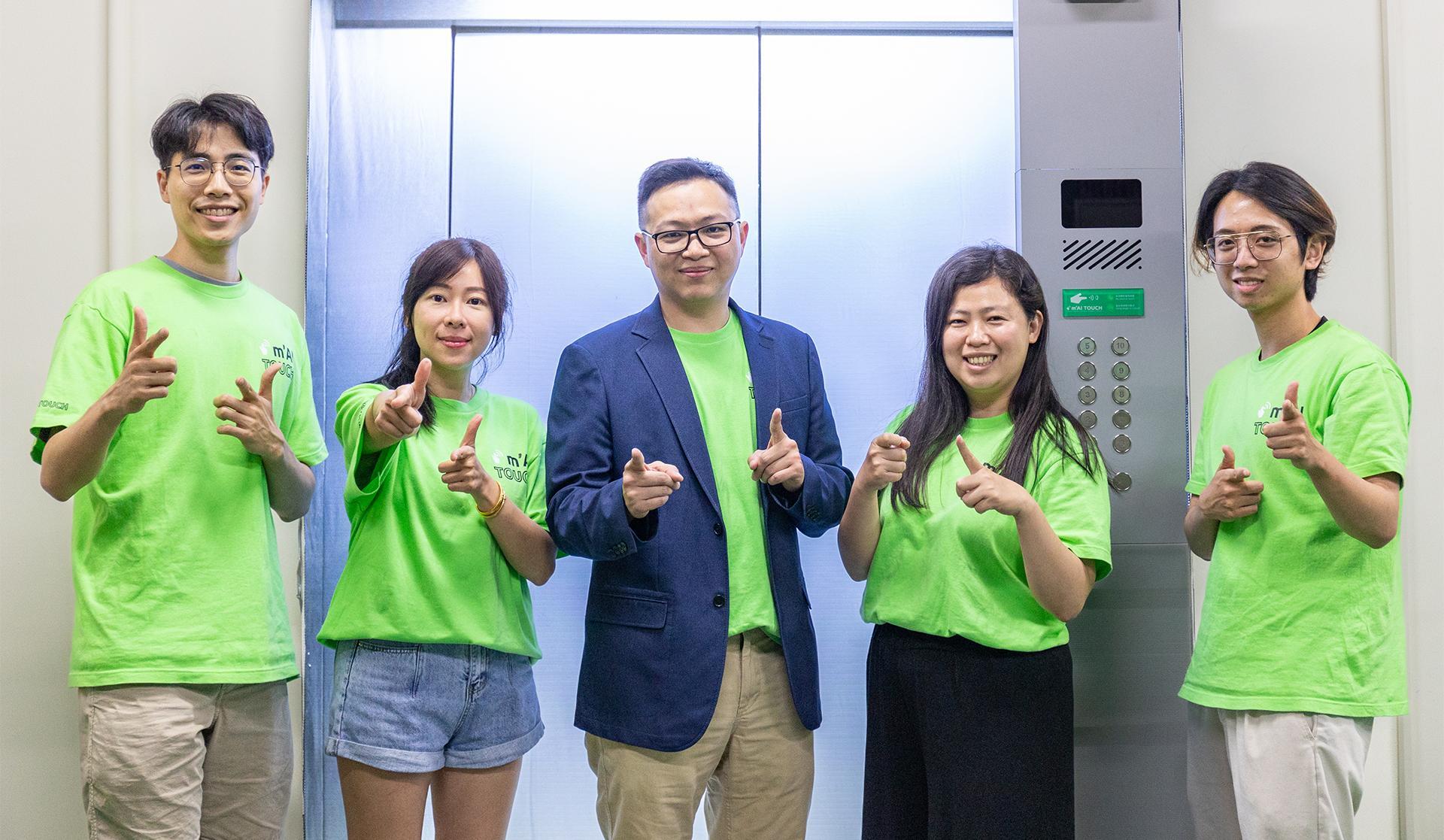
The members of the research team—Chen-wei Hu (胡承維), Ya-hui Chang (張雅惠), Prof. Hung-wen Chen (陳鴻文), Yi-jiun Shen (沈宜郡), and Chung En Kuo (郭仲恩). (left to right)
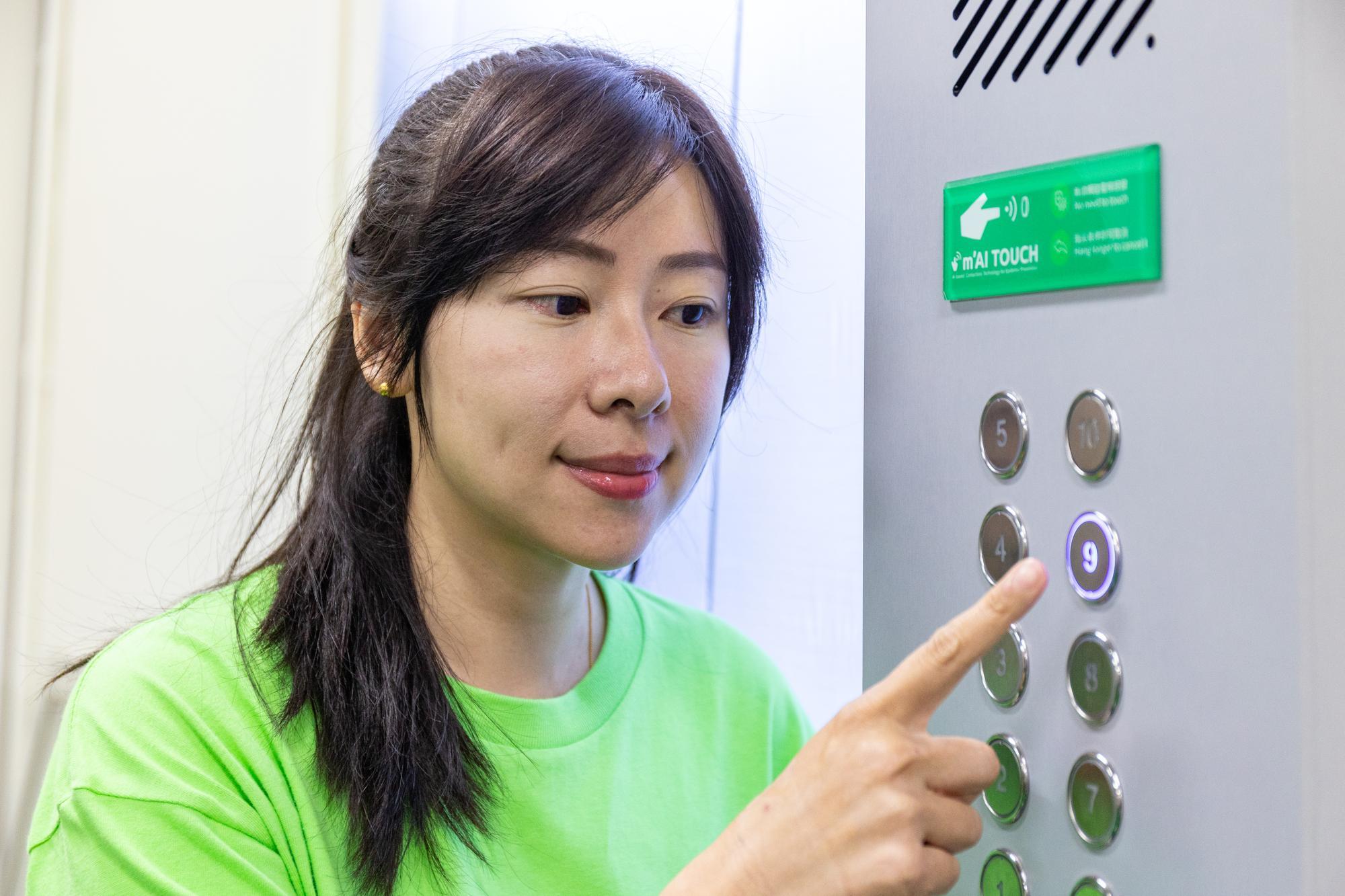
An NTHU research team has successfully developed m'AI Touch, a touch-free elevator device that helps reduce the spread of viruses.
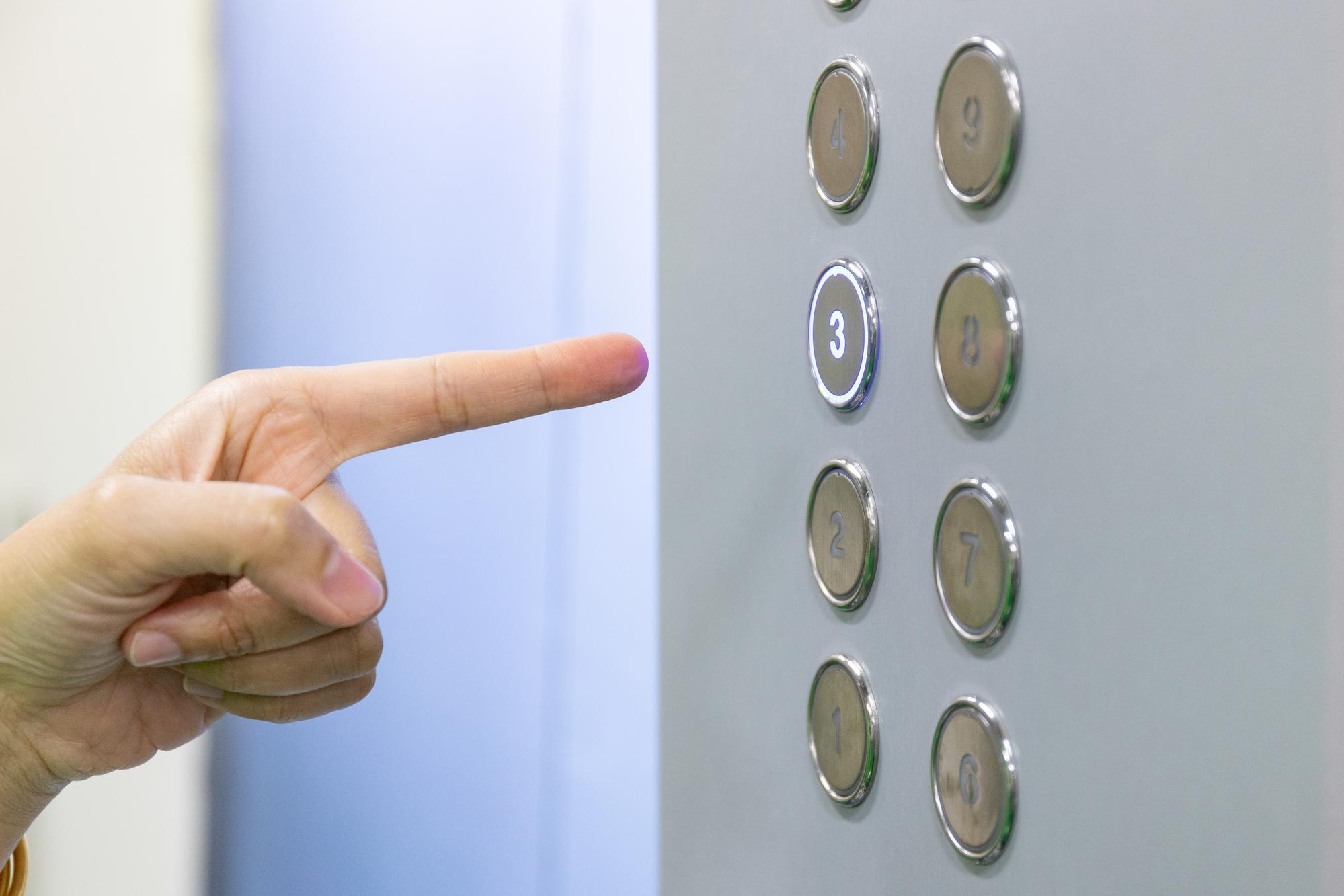
Fingers can be detected within a 5-centimeter range and activate the elevator buttons.
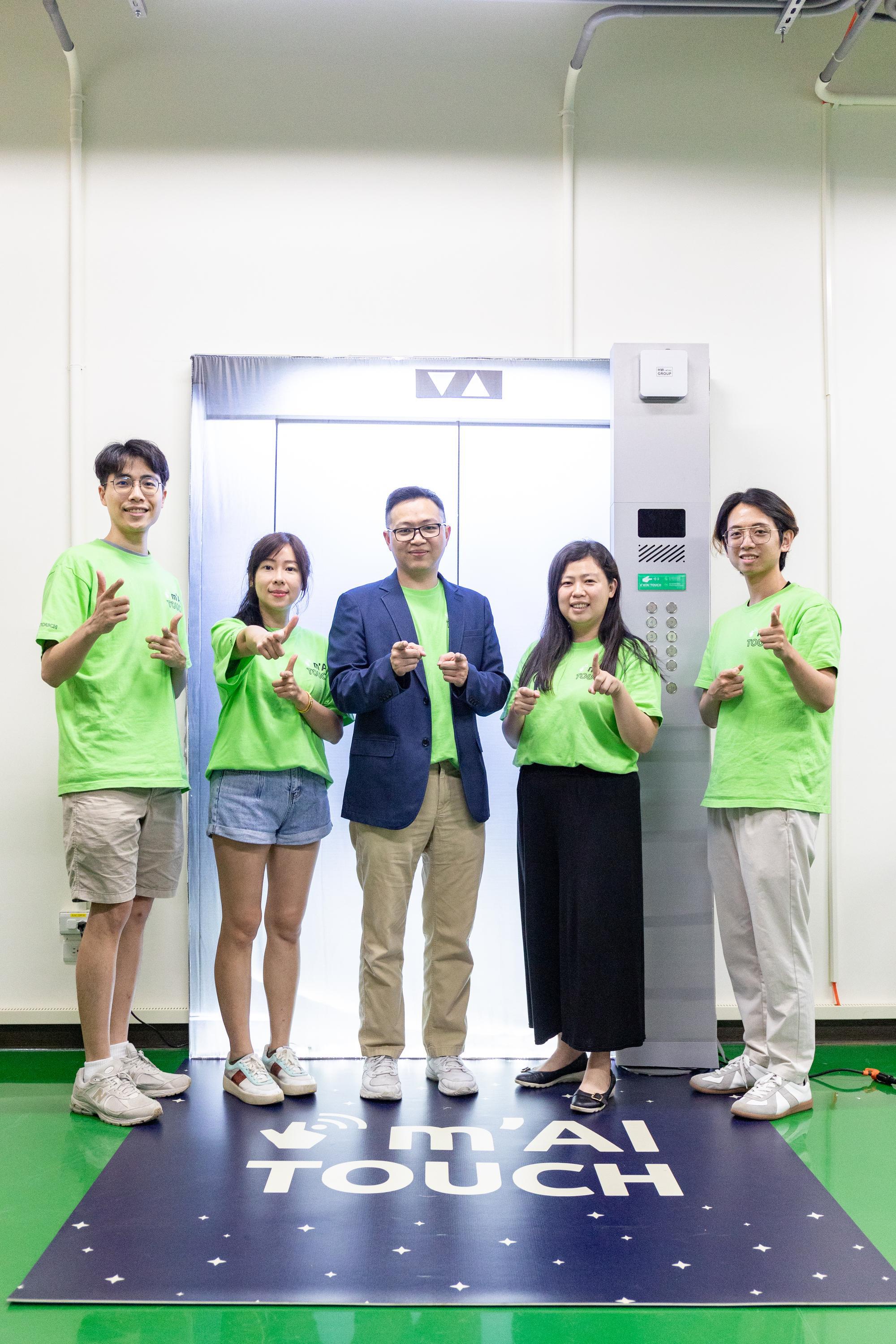
The members of the research team—Chen-wei Hu (胡承維), Ya-hui Chang (張雅惠), Prof. Hung-wen Chen (陳鴻文), Yi-jiun Shen (沈宜郡), and Chung-en Kuo (郭仲恩). (left to right)
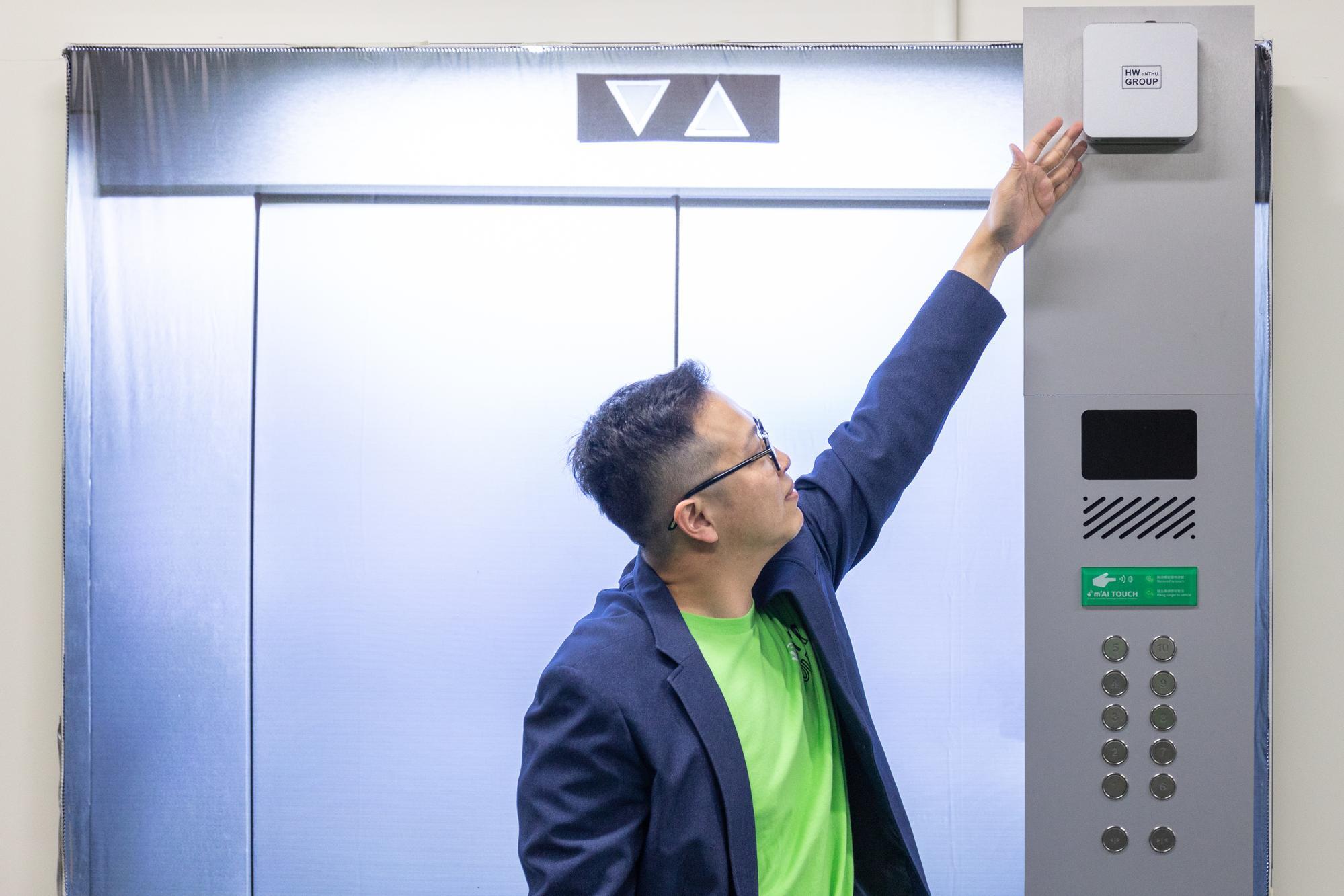
m'AI Touch installed above the elevator control panel.
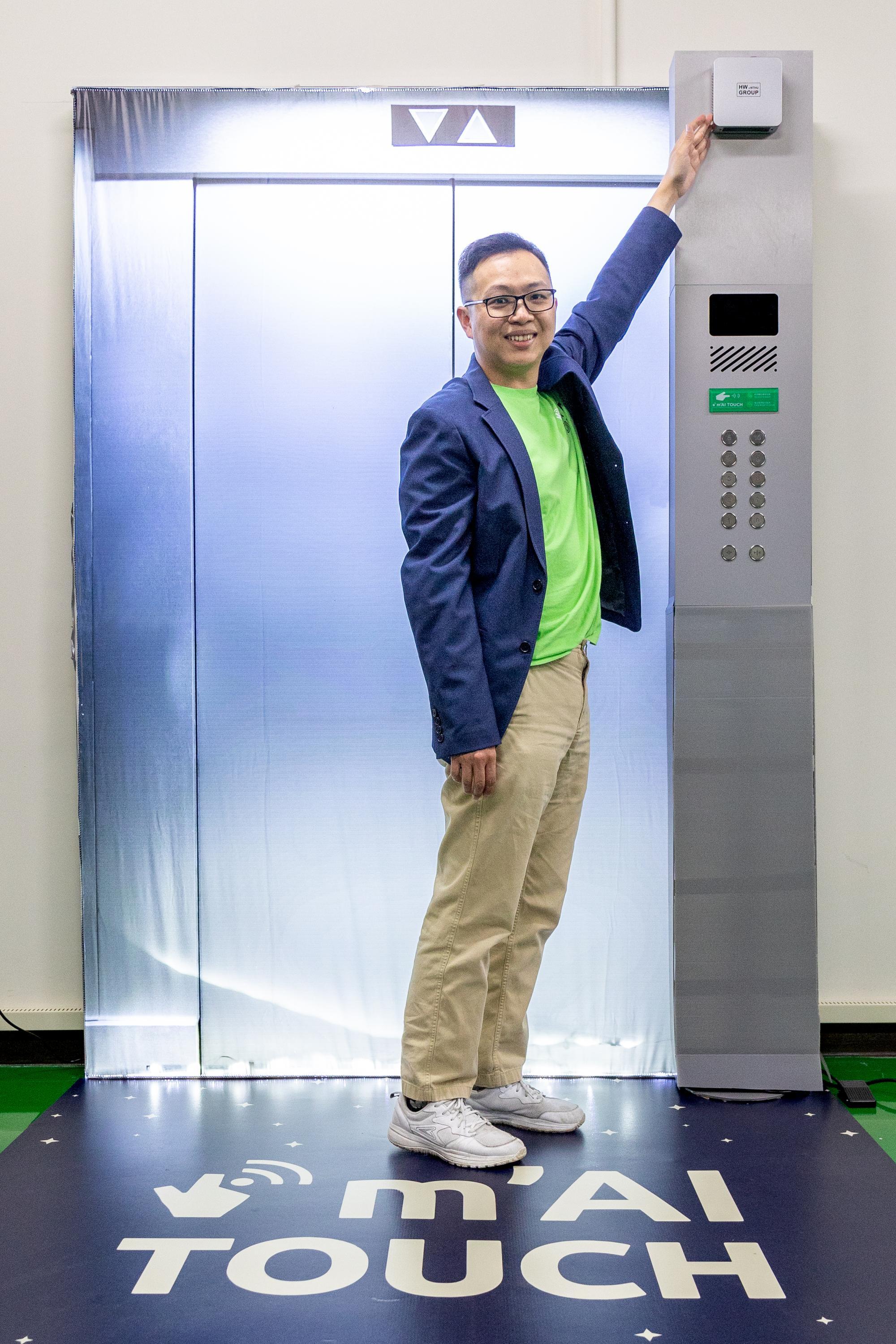
Hung-wen Chen, assistant professor in the IPHD at NTHU, has successfully developed m'AI Touch.
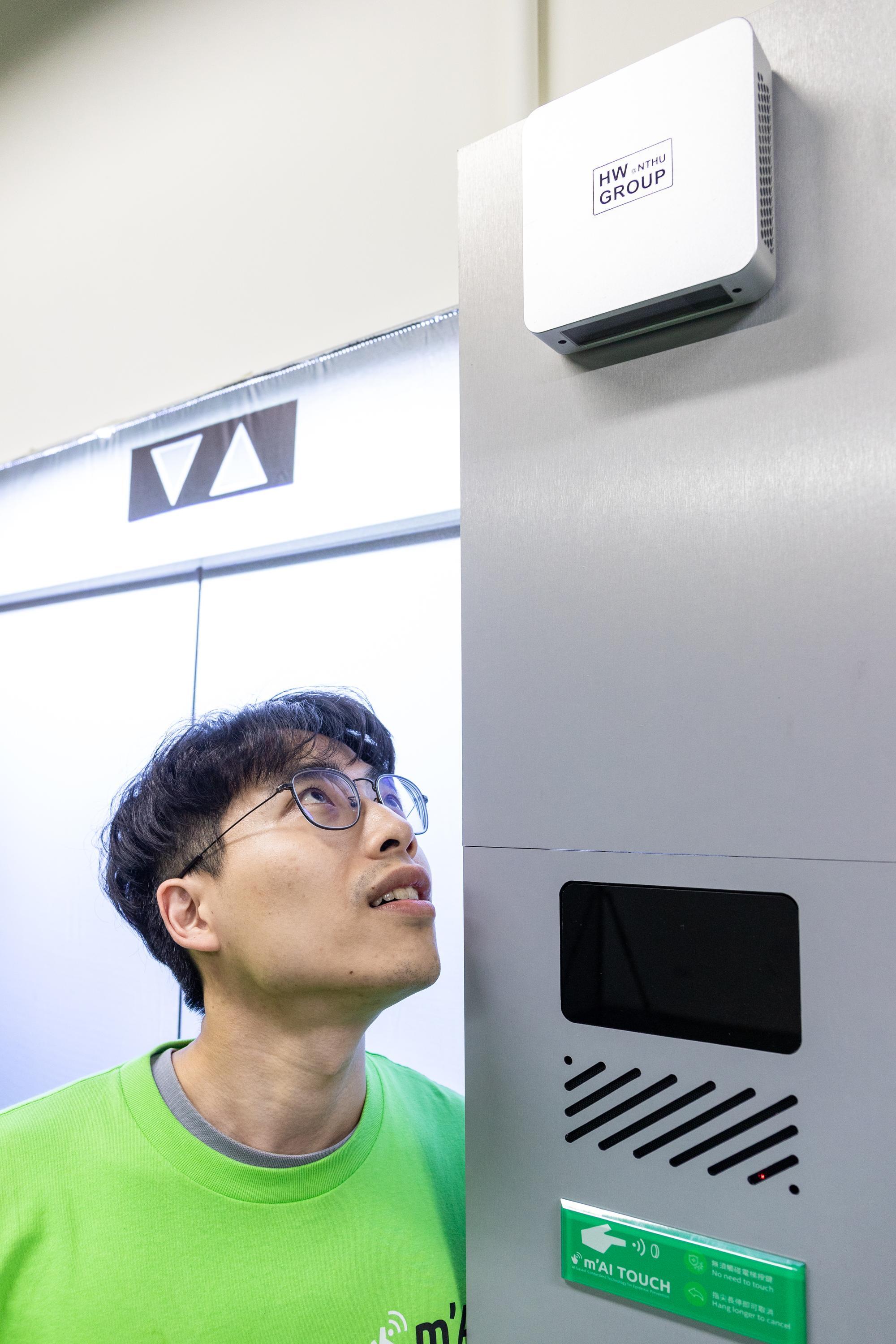
m'AI Touch installed above the elevator control panel near the ceiling.

Prof. Hung-wen Chen explains that the success of m'AI Touch relies on the utilization of AI algorithms and multiple infrared sensors.








